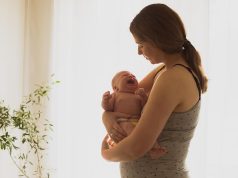Women working extra-long hours, men and women working weekends have more depressive symptoms
TUESDAY, Feb. 26, 2019 (HealthDay News) — Women working extra-long hours and men and women working weekends have increased depressive symptoms, according to a study published online Feb. 25 in the Journal of Epidemiology & Community Health.
Gillian Weston, from University College London, and colleagues analyzed data from 11,215 men and 12,188 women in employment or self-employment. The correlations between work hours and weekend work patterns and depressive symptoms were examined with adjustment for potential confounders and psychosocial work factors.
The researchers found that working 55 hours/week or more correlated with more depressive symptoms among women (β = 0.75; 95 percent confidence interval [CI], 0.12 to 1.39) but not among men (β = 0.24; 95 percent CI, −0.1 to 0.58) compared with a standard 35 to 40 hours/week. Working most or all weekends correlated with more depressive symptoms for both men (β = 0.34; 95 percent CI, 0.08 to 0.61) and women (β = 0.5; 95 percent CI, 0.2 to 0.79) relative to not working weekends; working some weekends only correlated with more depressive symptoms for men (β = 0.33; 95 percent CI, 0.11 to 0.55) but not women (β = 0.17; 95 percent CI, −0.09 to 0.42).
“Our findings should encourage employers and policymakers to consider interventions aimed at reducing women’s burdens without restricting their full participation in the workforce, and at improving psychosocial work conditions,” the authors write.
Copyright © 2019 HealthDay. All rights reserved.








